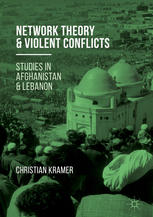

Most ebook files are in PDF format, so you can easily read them using various software such as Foxit Reader or directly on the Google Chrome browser.
Some ebook files are released by publishers in other formats such as .awz, .mobi, .epub, .fb2, etc. You may need to install specific software to read these formats on mobile/PC, such as Calibre.
Please read the tutorial at this link: https://ebookbell.com/faq
We offer FREE conversion to the popular formats you request; however, this may take some time. Therefore, right after payment, please email us, and we will try to provide the service as quickly as possible.
For some exceptional file formats or broken links (if any), please refrain from opening any disputes. Instead, email us first, and we will try to assist within a maximum of 6 hours.
EbookBell Team

4.4
92 reviewsThis book offers a novel approach to understanding violence and violent conflict using complexity and network theories, borrowed from the natural sciences, together with social network analysis. Because violence is both a universal and central component of human communication and identity formation, it has a fundamental function in shaping social behavior. Using Manuel Castells’ work on the programming of social networks, this book explores the Lebanese Civil War and the ongoing war in Afghanistan under the perspective of violence within networks. The approach presents a unique and compelling argument that counters the long-held assumption that war is caused by specific events, or is the unavoidable culmination of existing conditions or grievances. Rather, this book argues that violence emerges when the structure of social networks becomes too rigid and hierarchic to adapt to stresses and challenges that materialize on a constant basis from both within and without the network. This is important not only for the study of war, but as a method of improving the success of contemporary peace building efforts.